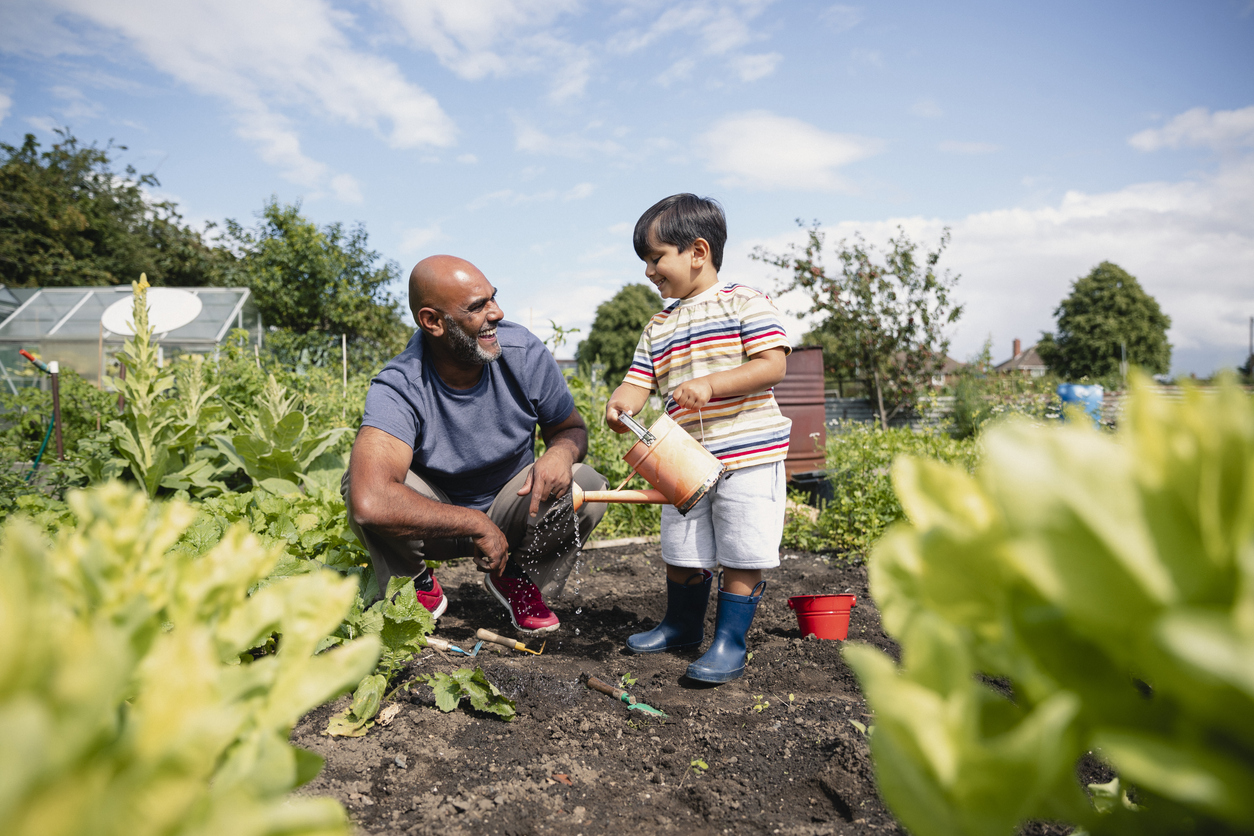
Our analysis of government data and survey insights highlight the positive impacts which improved financial support would bring for families and the state.
There will be a new duty to offer family group decision making, and programmes testing intensive support for family networks are ongoing.
Slow progress
Previous status: Good progress (September 2023)
Click on the link below to take you to the section you'd like to read:
The government’s Children’s Wellbeing and Schools Bill currently progressing through Parliament includes a new legal duty to embed family group decision-making (FGDM) as an offer for all families before care proceedings are initiated. In supporting wider family networks to be more effectively involved in decision making about the children they love, this aims to ensure a consistent offer across local authorities in England with the aim of reducing the number of children entering local authority care.
Both the Families First for Children Pathfinder (FFC) and Family Network Pilot (FNP) (see below for more information) are due to end in March 2025. We await further information about evaluation and how findings will be used to inform future new legislation and guidance. The government’s Keeping Children Safe, Helping Families Thrive policy paper, published in November 2024, offers some insight into learnings to date and notes that evidence from the Pathfinder will be used in future reform.
The National Kinship Care Strategy, published in December 2023, suggested that the Department for Education would publish evaluation findings from the Family Network Pilot (FNP) in Spring 2025 to inform future decisions about the wider rollout of Family Network Support Packages.
In February 2023, the previous government announced in Stable Homes, Built on Love £45 million investment in two new programmes:
This followed updated statutory guidance on kinship care (see ‘Local authority practice’) published in October 2024 which encourages local authorities to make use of findings from Foundations’ randomised control trial of family group conferences (FGCs) and work towards every family being offered an FGC at pre-proceedings stage, and the Children’s Social Care National Framework and revised Working Together to Safeguard Children guidance which highlight the expectation that family networks are engaged and empowered from an early point in referral, and that the voices of family networks are prioritised through the use of family group decision making wherever possible.
These actions followed the Independent Review of Children’s Social Care’s recommendation that a legal right to family group decision-making is introduced along with new Family Network Plans to better support kinship arrangements to prevent a child going into care. The term Family Network Support Packages was adopted instead following feedback that a new ‘Plan’ could introduce legal confusion and additional burdens.
The inclusion of a new duty to offer FGDM within the Children’s Wellbeing and Schools Bill is broadly welcome. This will help ensure that wider family networks can be more effectively involved in decision making about and supporting the children they love, and it may help the identification of potential kinship carers if required to deliver care in the future.
However, the government’s impact assessment is confused in how it anticipates the policy may impact on the number of children living in kinship care and their outcomes, and fails to understand within the current system the mechanics of how children are placed with kinship carers when the local authority is involved and where it is deemed a child cannot live with their parents.
Children placed in kinship foster care are looked after in local authority care rather than ‘diverted’ from care. Alternatively, although it will be the right option for some families, there are significant long-term implications for future eligibility for support for those who are instead encouraged to pursue an informal arrangement or a legal order secured in private proceedings as a result of a family group decision making meeting. This is an important consideration too for the government’s planned trial of a kinship allowance and any desire to ‘divert’ children from care and into other kinship care arrangements.
More broadly, the shift towards much earlier involvement of and funded support for kinship carers prior to a legal order being made and without the child having to become ‘looked after’ is welcome, particularly as support for informal kinship carers is often poor or non-existent. Our 2022 annual survey found that only 4% of informal kinship carers received financial support from their local authority, despite their children’s similar needs and experiences to those in other forms of kinship care.
It is understandable that plans seek to test out new ways of working in tandem with each other to learn more about how to implement whole-system reforms successfully. In Stable Homes, Built on Love the previous government said it was “proposing to develop the pathfinders on an incremental basis, with certain elements that we’d need to see as a minimum now and an expectation that the pathfinder would expand its remit in future after we have tested and evaluated the concept”. However, this is unlikely to provide sufficient clarity for other local authorities who want to pioneer new ways of working today. Longer-term expectations around funding, timescales and accompanying points of assessment to stop, scale or adjust pilot activity were missing from Stable Homes, Built on Love and the National Kinship Care Strategy.
The government must deliver further reform to end the perverse incentive which necessitates children’s entry into local authority care in order to deliver well-supported kinship care arrangements, if deemed in the child’s best interest following any family group decision-making process. Whilst it is right that kinship care options with family and friends are prioritised when a child must enter care, we must not simply see increasing the number and proportion of children looked after in kinship foster care as a measure of success. Our research highlights that too many kinship families feel unable to move from kinship foster care to more suitable permanent kinship arrangements, such as special guardianship, due to a lack of guaranteed support, with significant implications for those families and for local authority budgets.
Future policy development should build on findings from the FFC pathfinder, FNP and implementation of the FGDM duty to consider, including through the use of bespoke kinship care pathways, how local authorities could then best actively support progression – when in the best interests of the child – to other more permanent kinship arrangements such as special guardianship without necessitating entry into local authority care and without negative implications for future support.
As detailed in the Independent Review of Children’s Social Care, the type support offered via Family Network Plans (now known as Family Network Support Packages) could include significant and intensive efforts which respond flexibly to fund different families’ needs, including “providing funding to make adaptations to a relative’s home through to compensating someone for reduced working hours”. This level of intensive support must be realised within the delivery of the Pathfinder and pilots in order to properly evidence how early support can deliver better experiences and outcomes for families, and establish more effective spending practices for local authorities.
It is also important that kinship carers who have taken steps towards permanence through securing a special guardianship order, for example, aren’t ‘locked out’ of potential support through a Family Network Support Package if their assessed needs determine this is the only way to offer the level of support required and where there is a risk the child would otherwise go into care.
In delivery of the pilots, local authorities and the Department for Education should consider the role of the voluntary sector, especially where collaboration could provide further insight and evidence about how the support offered through programmes such as Kinship Connected – which delivers intensive 1:1 support and facilitated peer support groups – can further improve experience and outcomes for families alongside practice reforms.
The Pathfinder and pilots must seek to understand how to balance requirements for assessment and ongoing formal oversight from local authorities whilst respecting the unique nature of kinship care and its position straddling state-led child welfare intervention and private family life. This was a key message within our response to the government’s Stable Homes, Built on Love consultation. Kinship carers should be involved in co-designing how to do this well, and in ways which reduce unnecessary, stigmatising and invasive practice.
Around 18,000 children in kinship care are at risk of entering local authority care
13% of kinship carers said they were concerned about their ability to continue caring for their kinship child or children in the next year
8% of kinship carers were using food banks because of increases in the cost of living

Our analysis of government data and survey insights highlight the positive impacts which improved financial support would bring for families and the state.

Find out how you become a kinship carer, and what to expect from the process.

This study aims to understand the role of support from family, friends and community groups for kinship carers from different backgrounds.
View Understanding kinship carer networks to inform targeted support